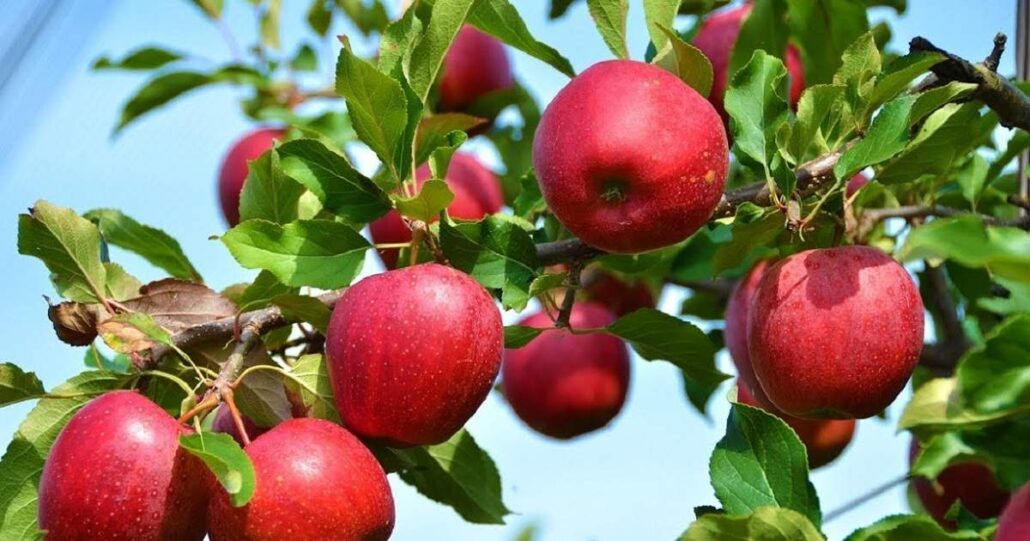
Pest a recent import, curable if farmers follow advisories, say Experts
Apple growers in Zainapora hamlet of South Kashmir’s Shopian district are in distress as a new pest has been found in their orchards that is infecting the apple crop.
Locals from Zainapora area told news agency—Kashmir News Observer (KNO) that such kind of an insect has been found for the first time and that the pest was creating havoc in the orchards.
“Our produce is less shiny, smaller in size as this insect has sucked all the nutrients from trees,” the locals said.
Tawseef Ahmad, a resident of Zainapora area of Shopian, said that new pest is laying web layers from one branch to another, followed by trunk and then even inserting its body into the fruit.
“This pest whose number is in millions has sucked all nutrients from the tree due to which size of fruit is small. It is damaging leaves and then trees as well,” he said.
Orchardists said that they are unable to pick apples as this pest bite causes allergy and that they are not even able to hire labourers. “Even after spraying insecticides several times, there is hardly any effect on this pest,” they claimed.
Senior Entomologists from Sher-e-Kashmir University of Agriculture Science and Technology (SKUAST) said that it is an invasive insect that has been identified as “leaf miner and has probably reached here before two or three years.”
“Leaf miners were reported sometime before but this year their manifestation is very huge,” they said, adding that “Most pathogens and fungal or bacterial diseases are invasive species and this leaf miner is curable if growers will follow advisories regularly.”
Meanwhile, growers demanded that it should be checked as to how this insect reached here and proper vigil must be kept on such things in the future.
Pertinently, the department of Horticulture has already issued an advisory for farmers to stop the spread of leaf miners.
Notably, around half population of the valley is directly or indirectly on fruit industry as this industry has a turnover of around 20,000 crores annually—(KNO)




